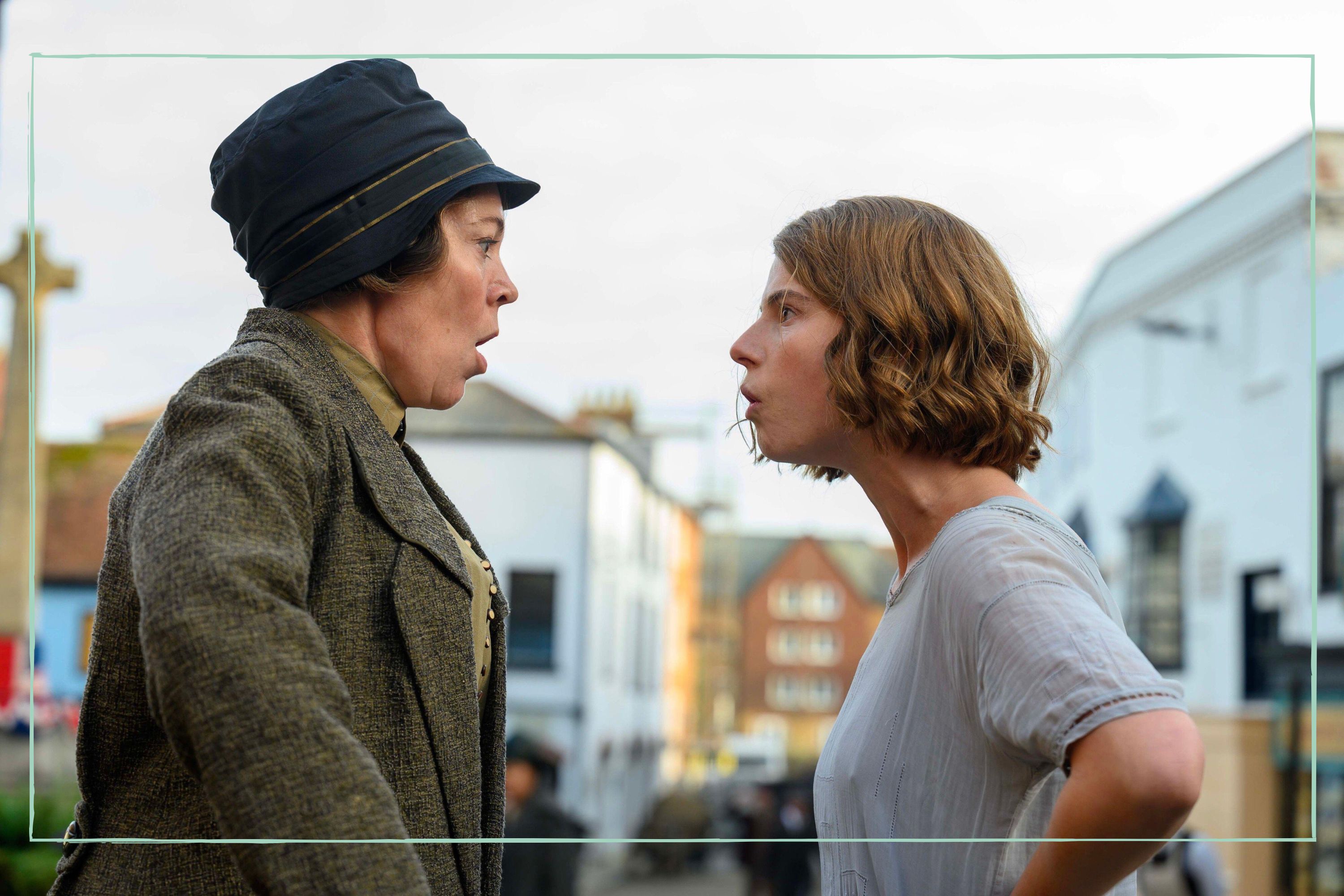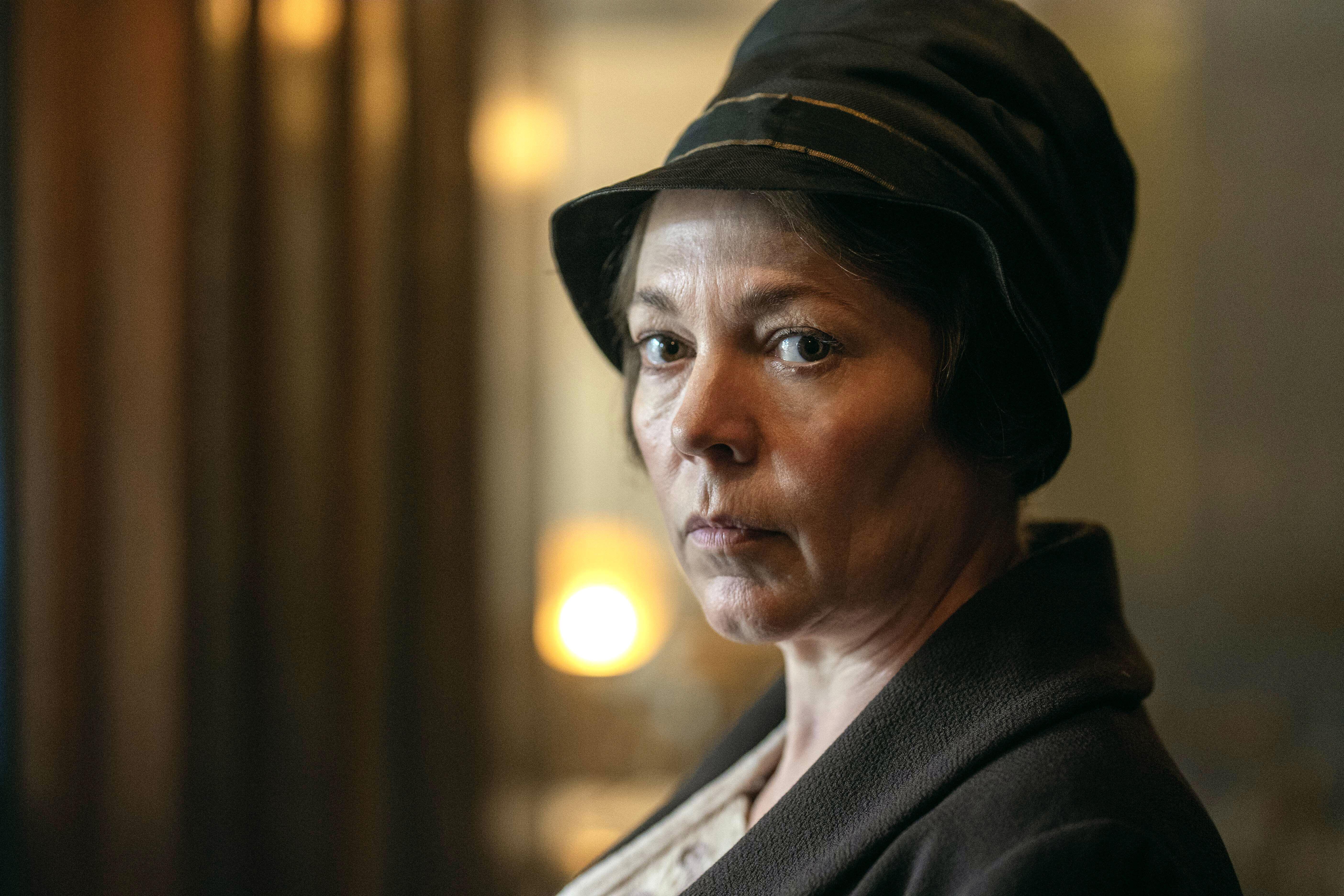Is Wicked Little Letters a true story and what happened to Rose Gooding and her family?
The tale of a sleepy 1920s seaside town rocked by a scandal is gripping


Is Wicked Little Letters a true story? We delve into what really happened when a series of poison pen letters shocked a sleepy 1920s seaside town, and whether Rose Gooding was a real person who sent them.
After enjoying a run last year in cinemas, Wicked Little Letters has arrived on Netflix. With a stellar cast headed up by the inimitable Olivia Colman and the excellent Jessie Buckley, the period romp tells the story of neighbours Edith Swan and Rose Gooding, living in the seaside town of Littlehampton in the 1920s. Buckley stars as Irish immigrant, Rose Gooding, who becomes an unlikely best friend to her ultra conservative neighbour (Colman).
After a falling out involving Edith calling child services to tell them Rose isn't a good parent, Edith finds herself on the receiving end of a series of obscene letters - and immediately points the finger at Rose. Soon, other residents of the town receive similar letters and a full blown scandal is born, leading to the town’s only woman police officer determined to get to the bottom of the tale. If you're wondering whether the film is based on real events, we reveal everything we know about Wicked Little Letters.
Is Wicked Little Letters a true story?
Yes, Wicked Little Letters is based on the very much true story of Edith Swan and Rose Gooding, in 1920s Littlehampton.
Rose Gooding moved to the Sussex seaside town in 1918. Unusual for the time, it was believed she had given birth out of wedlock, before marrying husband Bill. Rose's sister, Ruth, also lived with Rose and Bill. Rose wasn't Irish as depicted in the film, but was considered to be of lower class and moral standards to her conservative neighbour, Edith. Edith was a spinster, caring for her parents and two older brothers who all lived together in the same house.

According to the West Sussex Record Office, The Goodings and the Swans shared a garden, and Edith initially sparked up an unlikely friendship with her new neighbour. They shared chutneys and knitting patterns, and bonded over domestic chores. However, the shared garden soon became a source of friction between them, and they began arguing over it.
Just after Easter in 1920, Edith reported Rose to the NSPCC for allegedly bringing harm to her children. Soon after this, Edith began receiving poison pen letters full of profanity. Other members of the nearby community quickly began reporting they had been posted similarly rude letters. As they were signed with Rose's initials, it was easy to believe she'd sent them.
Parenting advice, hot topics, best buys and family finance tips delivered straight to your inbox.
Edith sought legal advice, and Rose was held in prison until a case could be built against her. With no evidence to prove the handwriting in the letters belonged to Rose, she was still convicted of sending them and sentenced to remain in prison for another two months.
Following Rose's release in December 1920, the letters to Littlehampton residents resumed once again. In January 1921, Edith reported Rose to the police as the suspected culprit, and the process of bringing the case to court again began. The jury requested to view Edith’s handwriting to compare it against the letters, but this was denied. It appeared nobody thought Edith could be behind them as a way of getting back at Rose for their falling out. Rose was once again found guilty, and this time sentenced to 12 months in prison with hard labour.
To everyone's surprise, the poison pen letters were still arriving on local residents' doorsteps, even with Rose in prison. This meant Rose could not have been behind them, as all correspondence sent from the prison was checked and she would have been found out. This further fuelled suspicions that Edith was behind the notes - blotting papers with discernible words used in the letters were found during a search of her home.
With this evidence, Rose had her conviction overturned two months into her sentence, and she was awarded £250 in compensation. With the letters still circulating, PC Gladys Moss was assigned to the case in September, 1921. Observing Edith and Rose, Gladys witnessed Edith throwing a letter into a neighbour's garden. It was found to contain offensive words, and Edith was eventually arrested for this single count of criminal libel.
During her trial, which attracted nationwide press attention, Edith was found not guilty. The letters continued and were still being sent in 1923. Determined to nail the case against Edith, the police and the General Post Office worked together to set a trap for her. A batch of stamps marked with invisible ink was delivered to the post office Edith used, and the staff instructed to only sell these to her. Once she was seen posting letters, they were retrieved for analysis using the invisible ink to link them to her.
Letters penned by Edith and bearing the special stamps were found to be of an obscene nature. She was charged on July 4, and later found guilty at her trial. Edith was sentenced to twelve months in prison with hard labour, as Rose had been before her. Finally, the saga of the Littlehampton poison pen letters was over.

What happened to Rose Gooding in real life?
Rose Gooding continued to live in Littlehampton, and records exist proving she and Bill were still residents there in 1939.
Find My Past has details of the couple still living in the area on the 1939 Register. Very little else is known about Rose, who likely would have been grateful to leave the incident behind her and live out a quiet life with her husband and family.
Such was the disbelief that a lady such as Edith could be responsible for sending such letters, her mental health at the time was brought into question. The Guardian spoke to social historian Emily Cockayne, an expert consultant on the film who has researched the lives of Edith and Rose in depth. Emily believes Edith's history could have resulted in mental health imbalance.
She was the youngest of 13 children, and at the age of 30 was still living in her childhood home, caring for two brothers and both parents. Cockayne’s research found the brothers to be possibly mentally unstable, while Edith shared a room with her parents. Police at the time described her father as "an irritable and excitable old man who would not be very difficult to upset." With no time to be herself, Cockayne believed Edith could have felt trapped and frustrated by her circumstances, relieving her feelings by sending obscene letters.
Find My Past confirms that Edith possibly was blighted by mental health issues. They report that by 1939 she was listed as an 'incapacitated' patient, living at an institution in Worthing. She died in the institution in 1959, at the age of 68.

Wicked Little Letters: Cast
- Olivia Colman (The Favourite, Wonka) as Edith Swan
- Jessie Buckley (Chernobyl, Fargo) as Rose Gooding
- Anjana Vasan (We Are Lady Parts, Killing Eve) as PC Gladys Moss
- Malachi Kirby (Boiling Point, Devils) as Bill
- Timothy Spall (Harry Potter, The Sixth Commandment) as Edward Swan
- Joanna Scanlan (The Larkins, The Light in The Hall) as Ann
- Gemma Jones (Bridget Jones, Gentleman Jack) as Victoria Swan
- Lolly Adefope (Ghosts, Saltburn) as Kate
- Eileen Atkins (The Crown, Doc Martin) as Mabel
- Alisha Weir (Matilda: The Musical) as Nancy Gooding, Rose's daughter
- Hugh Skinner (The Windsors, The Witcher) as Constable Papperwick
- Richard Goulding (The Crown, A Very British Scandal) as Mr. Scales
- Jason Watkins (SAS: Rogue Heroes, The Catch) as Mr. Treading

Wicked Little Letters: Reviews
Although many films garner mixed reviews on their release, Wicked Little Letters appears extreme - critics and viewers either love it, or hate it.
Peter Bradshaw from the Guardian offered the film two stars, writing "Wicked Little Letters is a depressing, obvious, clunky waste of a stellar cast. Any wider comment on the strange, sad nature of the scandal this film is based on is sidestepped in favour of broad laughs and superficiality."
However, Clarisse Loughrey from the Independent offered the film four stars. She said "If there are no other pleasures to Wicked Little Letters beyond the tome’s worth of expletives launched by Olivia Colman and Jessie Buckley, then so be it. That’s plenty enough to sustain this witty, joyously written piece of forgotten history, scripted by comedian Jonny Sweet. The camera looks up to Colman and Buckley in adulation, often allowing their features to seize the entire frame. Here’s a film that understands perfectly well that the two of them are all we need to enjoy ourselves."
There was similar discord between those who wrote reviews on Google. One person shares "I can't believe anyone thought it would be worthwhile to make a movie about nothing, and fill it with cliches and stereotypes. And I can't believe I watched it - or at least most of it, and then fast forwarded the last bits."
However, there were also plenty of five star reviews with another writing, "While Wicked Little Letters may not be garnering universal critical acclaim, it proved to be a delightful surprise for me. The film's charm lies in its embrace of simplicity. Eschewing a convoluted plot in favour of its true-story foundation, the narrative allows the fantastic comedic performances and engaging characters to take centre stage. Critics seeking a labyrinthine plot might find themselves wanting, but for those seeking a heartwarming and humorous experience, Wicked Little Letters delivers."
For more on dealing with family conflict in the way Edith and Rose do with their respective families, we have some advice, along with why the pair should've implemented more boundaries in their relationship with one another. Edith claimed to have grown up lacking affection, which is why she could've developed the personality she did.

Lucy is a mum-of-two, multi-award nominated writer and blogger with six years’ of experience writing about parenting, family life, and TV. Lucy has contributed content to PopSugar and moms.com. In the last three years, she has transformed her passion for streaming countless hours of television into specialising in entertainment writing. There is now nothing she loves more than watching the best shows on television and sharing why you - and your kids - should watch them.